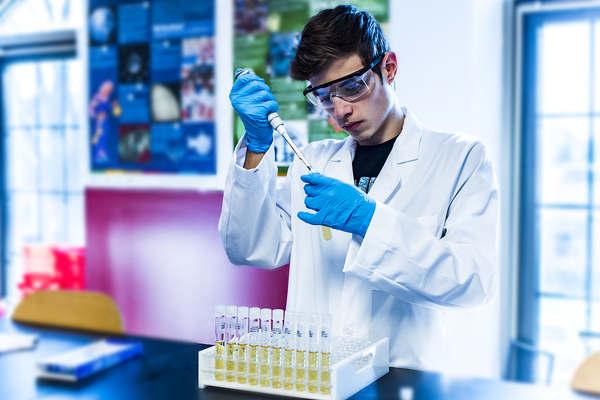
“We do not learn from experience… we learn from reflecting on experience.”
–John Dewey
Experiential learning has gained prominence in recent years as an effective way for students to learn both inside and outside the classroom. Focused around students’ experiences, experiential learning goes beyond hands-on learning to guide students in reflecting on specific experiences to learn about a subject.
As students actively involve themselves in an experience, such as a science experiment, leading a classroom discussion, or completing a project, they can analyze the experience as a whole or a particular aspect of the experience to determine which lessons can be learned from it and how they can improve it in the future.
Benefits of Experiential Learning
There are many benefits to experiential learning that make it worthwhile. One of the biggest benefits of experiential learning is that students can’t be passive. Experiential learning forces students to actively participate and remain engaged in order to fulfill the expectations of the course in a satisfactory fashion.
Students who are engaged and actively learning are less likely to become bored and disinterested in their subject, making experiential learning one of the more interesting ways of teaching from most students’ perspectives. Students who are taught through experiential methods may be more likely to enjoy the learning process, which will encourage them to pursue higher learning and more advanced educational experiences.
Experiential learning also encourages students to take ownership of their learning as they are guided toward successful learning outcomes that can’t be achieved unless they use their abilities to generate those outcomes. Experiential learning is often highly personalized, with different students coming to different conclusions according to their own needs and experiences.

Experiential Learning Provides Safety
Experiential learning creates a controlled environment in which students can learn experientially without being exposed to risks that could harm them in the “real world.” The “sink or swim” mentality may work in some instances, but in others, it merely puts students at risk for negative outcomes.
This is why medical students practice procedures on cadavers, for instance, or why teaching students have early practicums where they can execute lessons under the watchful eye of a mentor who can step in if the situation warrants it. Both of these scenarios give students real-world experience without putting themselves or anyone else at risk.
Many experiential learning situations also involve collaboration with peers, which is invaluable in teaching interpersonal skills that will be needed later in the workplace. The collaborative experience can then become part of the experiential process and be analyzed along with the rest of the lesson.
Finally, experiential learning helps students internalize the material being taught and retain it better. Students will typically lose up to 97 percent of the material they learn on a given day, but having experienced something for themselves and reflecting on it improves retention significantly.
CCSU offers continuing education courses that are often experiential in nature and improve students’ learning outcomes. Join our mailing list to see the many choices we offer to further your professional and personal education.
